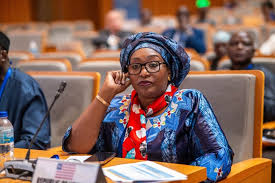The 16th Meeting on Social Protection, a hybrid event organized by FAO, will bring together experts, government officials and key civil society actors to discuss social protection policies that are essential to reducing poverty and improving food security in the region.
The Food and Agriculture Organization of the United Nations (FAO) Subregional Office for West Africa announces the holding of its 16th Annual Multidisciplinary Team Meeting (MDT16) from 19 to 22 November at the Praia Mar Hotel in Praia, Cabo Verde.
According to an FAO press release seen by APA, this meeting will be held in hybrid mode under the theme: “Synergy among actors: dynamic social protection to strengthen resilience and ensure food and nutrition security in West Africa.”
According to the UN agency, social protection interventions are essential to fight poverty, prevent risks and improve livelihoods, especially in times of crisis. If well designed, they can improve food quality, promote gender equality, support education and develop productive and social infrastructure to boost rural economies.
Despite government commitments, social protection coverage in West Africa remains low, with only 13% of the population receiving at least one benefit. Public spending on social protection averages less than 1% of GDP. It is therefore crucial to integrate social protection into broader rural development policies and programs. The adoption of the ECOWAS Social Protection Framework is an important step forward in helping countries to improve their social protection systems and cross-sectoral coordination.
Chaired by Mr. Gilberto Silva, Minister of Agriculture and Environment of Cape Verde, this 16th edition of the conference will bring together technical experts, senior officials from relevant ministries, representatives of economic communities and subregional institutions (ECOWAS, CILSS, UEMOA, CORAF, AES, etc.), as well as UN agencies, civil society organizations and other key stakeholders. This platform will provide an opportunity to exchange views on achievements and challenges related to social protection in West Africa.
“We aim to create a robust platform for collaboration between the FAO Subregional Office for West Africa, national offices, governments, regional economic communities, civil society and the private sector. This will be an opportunity to look together at our achievements and challenges, while developing approaches to capitalize on our successes and solve problems,” said Ms. Bintia Stephen Tchicaya, Senior Policy Officer at the FAO Subregional Office for West Africa.
This 16th meeting of the MDT will bring together the subregional coordinator and the FAO representative in Senegal, as well as representatives from the 14 other countries in the subregion. Ms. Tchicaya added that “this meeting will promote exchange on emerging trends in social protection in West Africa. The aim will be to address vulnerability and promote inclusive transformation of rural and agri-food systems. It will also be an opportunity to identify the priority actions to be implemented to ensure social protection in West Africa, in the context of the revised Strategic Framework 2022-2031 and the Medium Term Plan (MTP).”
“We will review progress in implementing the recommendations of the 15th MDT meeting and set priorities for the next FAO Regional Conference for Africa (ARC 34), to be held in Mauritania in 2026. Participants will also share key findings and lessons learned from the implementation of the FAO Strategic Framework. At the end of this meeting, participants will have a better understanding of social protection issues and their importance in building resilient communities in West Africa and the Sahel,” concluded Ms. Tchicaya.
The FAO Subregional Office for West Africa was officially inaugurated on 25 April 2019. It covers fifteen countries, namely Benin, Burkina Faso, Cabo Verde, Côte d’Ivoire, Gambia, Ghana, Guinea, Guinea-Bissau, Liberia, Mali, Niger, Nigeria, Senegal, Sierra Leone and Togo, representing more than 300 million people.
It supports sub-regional organizations through its strategy and member countries through the Country Programming Framework (CPF), a strategic document developed jointly by FAO and each member country in line with the Sustainable Development Goals (SDGs). The CPF guides the actions of technical and financial partners in the countries concerned, with the aim of ensuring regular access to quality food for all citizens.
AC/sf/lb/as/APA


